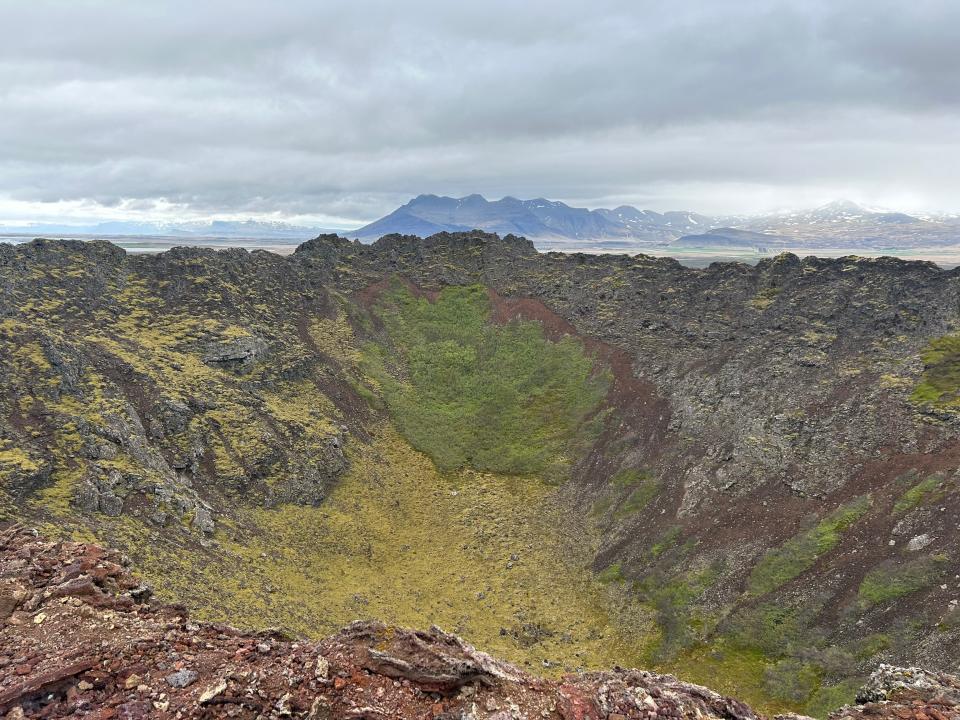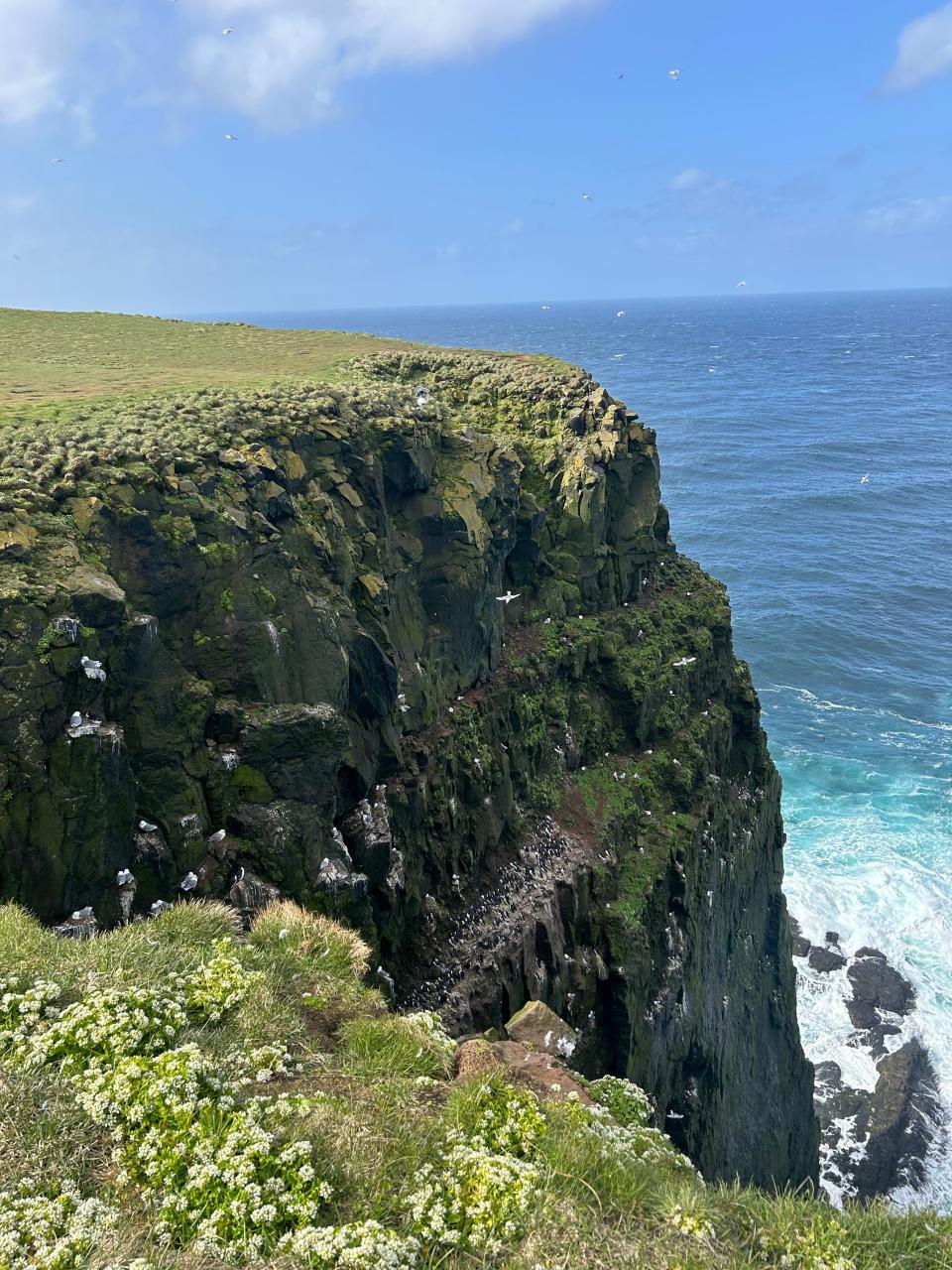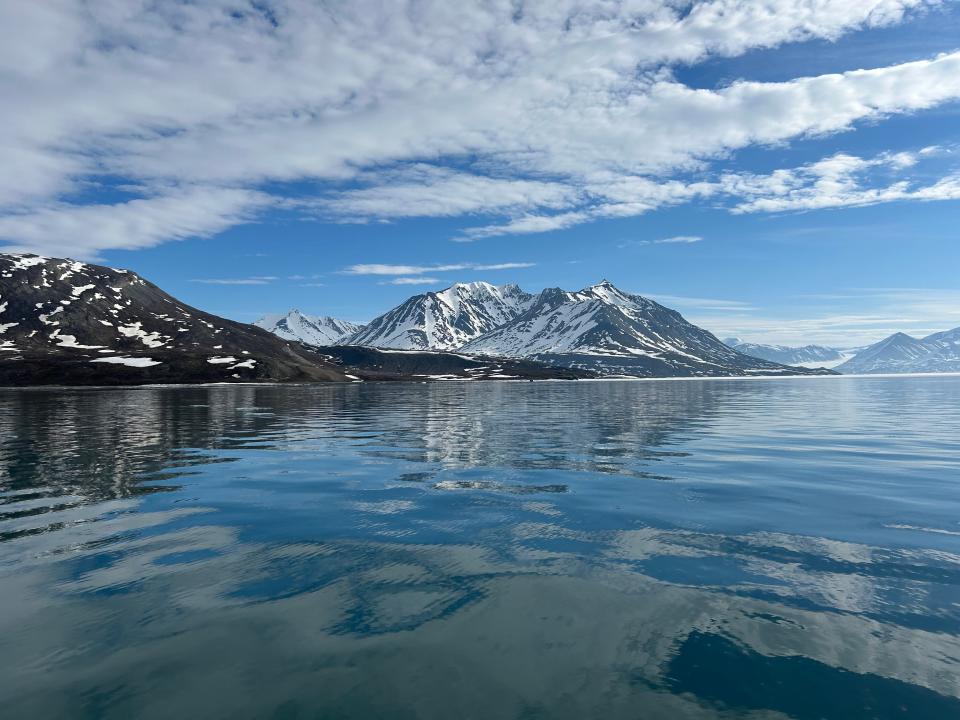Nature can make you feel small. You should seek that feeling when traveling.
Get more news like this delivered to your inbox by signing up for our Travel newsletter here.
I hadn’t hiked enough to know whether I liked it or not. In theory, it seemed like something I would enjoy. The reality was being overheated by two layers of jackets but with freezing hands and cold water running down my nose.
I don’t like hiking. I can confidently say that now.
On a recent expedition to the Arctic Circle with Aurora Expeditions, we were able to bear witness to nature’s grandiosity. The aforementioned hike was to Eldborg Crater in Iceland's Snaefellsnes National Park.
After roughly 4 muddy, rocky miles, I climbed the mountain to see … nothing. It was a crater, and like all beautiful things, it was ephemeral.
Expeditions aren't typical vacations: 'What a privilege it is to see these places'

I was out of breath, cold and sweaty simultaneously, annoyed at the thought of having to make the same trek back, and grateful that I felt dwarfed by everything around me.
Nature can make you feel small.
Oftentimes, the idea of going somewhere new or familiar is set with the expectation of relaxing or enjoying yourself. It is not often that we seek out the feeling of insignificance. But it’s a rewarding experience when you meet it face to face.
Embarking on an expedition cruise can offer travelers a unique adventure that combines exploration with the stark beauty of one of the world's last great wildernesses. The journey provides an intimate encounter with the region's unique wildlife while onboard experts deliver lectures about the fragile ecosystem and the need for preservation, offering a transformative journey that stays with travelers long after they return home.
The beauty of travel

As an avid ocean cruiser, I expected an expedition to hit similar benchmarks of relaxation. As soon as I stepped on board, I was dissuaded from that notion. This was an Expedition with a capital E. The small group of people on board were in this together so we were all gathered for the safety and instructional briefings — something that I usually do at my leisure in my cabin during ocean cruising.
We also all wake up together, thanks to the intercom morning announcements, which there are several during the day. Because it is an expedition, itineraries are more of a wish list than a concrete plan, so passengers are given updates on the planned activities every morning and throughout the day.
It can be daunting or reaffirming as a solo traveler to be on a rigid schedule with up to 132 other people. You will share meals and experiences with your fellow passengers, it is inevitable to feel a sense of camaraderie by the end of your first of 12 days. After all, you hiked almost 4 miles in the rain together, helped each other from slipping in the mud, held on to each other during bumpy Zodiac rides, and gasped in synchronicity as you spotted whales a few feet from you.
Still, at the end of the hike, or the Zodiac ride, or whatever that day’s activity was, you have a moment to look up and see how small you truly are. The cliffs, the rocks, the water, the wind, the rain, the sun, it’s all there as a reminder of their perennial beauty.

And you can’t help but wonder: Why did it take almost 4,000 miles from my home to realize that?
That’s the beauty of travel. The more places you visit, the more comparisons and similarities you find to your home to realize that we are so small in this world but wield immense power to shape it.
A work deadline seems small compared to the hundreds of years it takes for moss to grow on volcanic rocks. The email you haven’t responded to yet pales in comparison to the constant reminder to cover your face to protect it from the wind. And the queasy feeling of performance reviews is nothing to the constant need to check where you’re stepping so you don’t fall off a cliff.
Traveling and nature can do that for us. They can make us feel small and liberate us from the stress we impose on ourselves. It’s one of those reminders that never register when you hear; you have to do the work of leaving your home to truly grasp it. Expeditions combine the two.
No matter how hectic your schedule is on a given week, the moss will still take almost ten years to convert to soil. And that’s OK.
Eventually, trips and expeditions end. Photos are a memento, but what stays with us are the feelings we experienced on days when we were away from home.
The reporter on this story received access to this event from Aurora Expeditions. USA TODAY maintains editorial control of content.
This article originally appeared on USA TODAY: Why you should seek out feeling small when you travel


